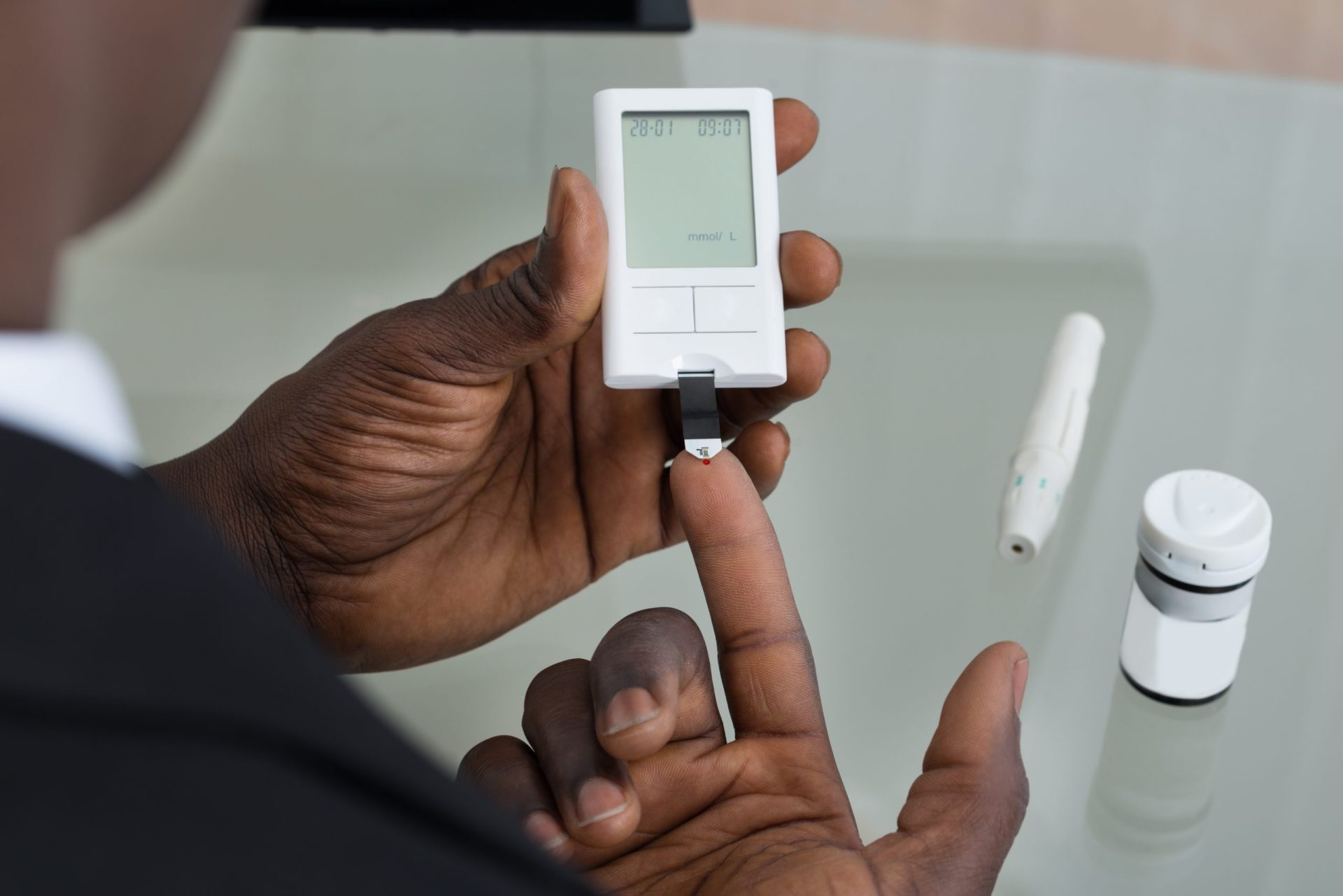The human body works tirelessly to maintain balanced blood sugar levels, but modern lifestyles constantly challenge this delicate system through seemingly innocent daily routines. Many people assume blood sugar management only concerns those with diabetes, yet stable glucose levels affect everyone’s energy, mood, heart health, and long-term disease risk. The most dangerous blood sugar saboteurs often hide in plain sight, masquerading as normal habits that millions practice without understanding their metabolic consequences.
Blood sugar spikes trigger a cascade of physiological responses that stress multiple organ systems simultaneously. When glucose levels surge repeatedly throughout the day, the pancreas struggles to produce adequate insulin while cells gradually become resistant to insulin’s effects. This progression toward metabolic dysfunction occurs silently over years, making prevention through habit modification far more effective than treatment after damage occurs.
The encouraging reality is that small, strategic changes to daily routines can dramatically improve blood sugar stability and overall health outcomes. Understanding which habits create the most significant glucose disruptions enables targeted interventions that produce measurable results within weeks. The key lies in recognizing these hidden threats and implementing sustainable alternatives that support optimal metabolic function.
1. Morning sugar bombs disguised as energy boosters
The typical American morning routine often begins with liquid sugar consumption that sends blood glucose soaring before the day officially starts. Popular coffeehouse beverages contain shocking amounts of added sugars that would be immediately obvious if consumed in solid form. A single grande white chocolate mocha delivers approximately 46 grams of sugar, equivalent to nearly 12 teaspoons of pure sugar consumed in liquid form.
Energy drinks represent an even more dangerous morning habit, with some 16-ounce varieties containing over 60 grams of added sugar alongside stimulants that further stress the metabolic system. These beverages lack fiber, protein, or other nutrients that could slow sugar absorption, creating rapid glucose spikes that trigger excessive insulin release and subsequent energy crashes.
The timing of these sugar-laden beverages compounds their negative effects, as most people consume them on empty stomachs when blood sugar is naturally lower. This creates an extreme glucose swing that stresses the pancreas and contributes to insulin resistance development over time. The habitual nature of morning beverage consumption means this metabolic stress occurs daily for years.
Breaking free from morning sugar dependence requires gradual reduction rather than complete elimination to avoid withdrawal symptoms and maintain energy levels. Reducing sweetener content by half while adding protein-rich foods creates a more balanced glucose response. Eventually, transitioning to unsweetened beverages or those with natural, fiber-containing ingredients supports stable energy without the glucose rollercoaster.
2. Dehydration disrupts glucose regulation
Chronic mild dehydration affects far more people than realize its impact on blood sugar control, yet this hidden condition significantly disrupts normal glucose metabolism. When body fluid levels drop even slightly, stress hormones including cortisol and vasopressin increase to help maintain blood pressure and organ function. These same hormones interfere with insulin effectiveness and promote glucose release from liver stores.
The concentration effect of dehydration also directly impacts blood glucose measurements by reducing the water content of blood, making existing glucose more concentrated. This creates artificially elevated readings that may persist even after rehydration occurs. Additionally, dehydrated kidneys struggle to filter excess glucose effectively, allowing blood sugar levels to remain elevated longer than normal.
Many individuals mistake thirst signals for hunger, leading to unnecessary food consumption that further elevates blood glucose levels. This confusion between dehydration and hunger contributes to overeating and weight gain that worsens insulin resistance over time. The brain’s glucose sensing mechanisms also become less accurate when dehydrated, affecting appetite regulation.
Proper hydration requires consistent fluid intake throughout the day rather than large amounts consumed sporadically. Water remains the optimal choice for most people, though those engaging in prolonged physical activity may benefit from electrolyte replacement. Monitoring urine color provides a simple gauge of hydration status, with pale yellow indicating adequate fluid levels.
3. Chronic stress elevates glucose through hormonal chaos
Modern life exposes most individuals to persistent low-level stress that maintains elevated cortisol and adrenaline levels throughout the day. These stress hormones evolved to provide quick energy during emergencies by releasing glucose from storage sites, but chronic activation of this system creates continuously elevated blood sugar levels that overwhelm normal regulatory mechanisms.
Stress-induced glucose elevation occurs independently of food consumption, meaning blood sugar can spike during stressful situations regardless of recent meals. This physiological response becomes particularly problematic for individuals with existing insulin resistance, as their cells cannot effectively utilize the extra glucose released by stress hormones. The combination creates a perfect storm for blood sugar instability.
The psychological effects of chronic stress also indirectly impact blood glucose through altered eating behaviors. Stress increases cravings for high-sugar, high-fat comfort foods while reducing motivation for healthy meal planning and preparation. Sleep quality suffers under chronic stress, creating additional metabolic disruption that compounds blood sugar problems.
Effective stress management requires identifying individual stress triggers and developing personalized coping strategies. Regular physical activity provides dual benefits by reducing stress hormones and improving glucose utilization by muscles. Mindfulness practices, adequate sleep, and social support all contribute to better stress management and improved blood sugar control.
4. Sleep deprivation wreaks metabolic havoc
Insufficient sleep creates a cascade of hormonal changes that significantly impair glucose metabolism and insulin sensitivity. Sleep restriction alters the production of key hormones including growth hormone, cortisol, and hunger-regulating peptides that normally help maintain stable blood sugar levels overnight and into the following day.
Even a single night of poor sleep can reduce insulin sensitivity by up to 25%, meaning cells require more insulin to process the same amount of glucose. This temporary insulin resistance becomes chronic when sleep deprivation persists, contributing to the development of type 2 diabetes and metabolic syndrome. The effect occurs regardless of body weight or other diabetes risk factors.
Sleep loss also disrupts appetite-regulating hormones, increasing levels of ghrelin that stimulate hunger while decreasing leptin that signals fullness. This hormonal imbalance drives increased food intake, particularly of high-carbohydrate foods that further destabilize blood sugar levels. The combination of impaired glucose processing and increased caloric intake creates a dangerous cycle.
Quality sleep requires consistent bedtime routines, appropriate sleep environments, and addressing underlying sleep disorders that prevent restorative rest. Most adults need 7-9 hours of sleep nightly for optimal metabolic function. Creating sleep-promoting conditions includes limiting screen time before bed, maintaining cool room temperatures, and avoiding large meals or caffeine close to bedtime.
5. Liquid sugar consumption throughout the day
Beyond morning beverages, regular consumption of sugar-sweetened drinks throughout the day creates repeated blood glucose spikes that stress metabolic systems continuously. Sodas, fruit juices, sports drinks, and flavored waters often contain 20-40 grams of added sugars per serving, yet many people consume multiple servings daily without considering the cumulative impact.
Liquid sugars absorb rapidly into the bloodstream because they bypass the normal digestive processes that slow solid food absorption. This rapid absorption creates higher peak glucose levels than equivalent amounts of sugar consumed in solid foods. The liver struggles to process these repeated glucose surges, leading to increased fat storage and insulin resistance development.
Many beverages marketed as healthy alternatives still contain significant amounts of natural sugars that affect blood glucose similarly to added sugars. Fruit juices, smoothies, and plant-based milk alternatives may contribute to blood sugar instability despite their nutritious reputations. Even 100% fruit juices lack the fiber present in whole fruits that helps moderate glucose absorption.
Replacing sugar-sweetened beverages with water, unsweetened tea, or sparkling water with natural flavor additions provides hydration without glucose disruption. For those who crave sweetness, gradually reducing sugar content or using small amounts of natural sweeteners can help transition taste preferences toward less sweet options.
6. Poor meal composition creates glucose chaos
The sequence and combination of foods consumed during meals significantly impacts post-meal blood glucose levels, yet most people pay little attention to meal composition beyond total calories. Eating carbohydrates first or in isolation creates rapid glucose absorption that overwhelms insulin response capacity, leading to prolonged elevation of blood sugar levels.
Protein and fiber consumption before or alongside carbohydrates dramatically reduces post-meal glucose spikes by slowing digestion and improving insulin sensitivity. The physical presence of fiber in the digestive tract creates a barrier that slows carbohydrate absorption, while protein stimulates insulin release and enhances glucose uptake by muscles.
Many traditional meal patterns unknowingly optimize blood sugar control through proper food sequencing and combinations. Mediterranean and Asian cuisines often include vegetables and proteins prominently in meals, naturally creating balanced glucose responses. Modern convenience foods and restaurant meals frequently lack adequate protein and fiber while providing excessive refined carbohydrates.
Restructuring meals to include protein and non-starchy vegetables with every eating occasion helps stabilize blood sugar throughout the day. This approach works whether following specific dietary patterns or simply modifying existing food choices. The goal involves creating balanced macronutrient ratios rather than eliminating entire food groups.
7. Sedentary lifestyle impairs glucose utilization
Physical inactivity represents one of the most significant modifiable risk factors for blood sugar problems and type 2 diabetes development. Muscles serve as the primary destination for glucose uptake from the bloodstream, but sedentary lifestyles reduce muscle mass and impair the cellular mechanisms responsible for glucose utilization.
Even brief periods of activity immediately after meals can significantly reduce post-meal blood glucose spikes by directing glucose toward muscle cells for energy production rather than fat storage. A 10-minute walk after eating activates glucose transport proteins in muscle cells, improving insulin sensitivity for hours after the activity ends.
Prolonged sitting, particularly after meals, allows blood glucose to remain elevated longer than normal because inactive muscles cannot effectively clear glucose from the bloodstream. This pattern of post-meal glucose elevation contributes to insulin resistance development and increases cardiovascular disease risk over time.
Regular physical activity provides both immediate and long-term benefits for blood sugar control. Immediate effects include enhanced glucose uptake by active muscles, while long-term adaptations include improved insulin sensitivity, increased muscle mass, and better overall metabolic function. The activity does not need to be intense to provide benefits, with moderate activities like walking showing significant glucose-lowering effects.
8. Fast food consumption sabotages metabolic health
Restaurant and fast food meals typically contain combinations of refined carbohydrates, unhealthy fats, and excessive calories that create perfect conditions for blood sugar spikes and long-term metabolic dysfunction. These foods often lack adequate fiber and protein while providing concentrated sources of rapidly absorbed carbohydrates.
The processing methods used in commercial food preparation often remove fiber and nutrients while concentrating sugars and starches, creating foods that absorb quickly and spike blood glucose levels. Additionally, large portion sizes encourage overeating, further overwhelming the body’s glucose processing capacity.
Hidden sugars in restaurant foods contribute significantly to blood glucose elevation, with many savory dishes containing added sugars in sauces, marinades, and seasonings. Bread, beverages, and desserts add additional glucose loads that create cumulative effects throughout the meal.
Home cooking provides greater control over ingredients, portion sizes, and cooking methods that support stable blood sugar levels. Preparing meals with whole food ingredients naturally reduces refined carbohydrate content while increasing fiber and protein intake. Batch cooking and meal planning can make home preparation more convenient and sustainable.
Comprehensive approach to blood sugar stability
Addressing multiple blood sugar-disrupting habits simultaneously creates synergistic effects that produce greater improvements than targeting individual behaviors in isolation. The interconnected nature of these habits means that improving sleep quality may reduce stress levels, while better stress management can improve food choices and increase motivation for physical activity.
Tracking blood glucose responses to different foods and activities helps identify individual patterns and triggers that may vary between people. Continuous glucose monitors provide detailed information about how specific habits affect blood sugar levels throughout the day, enabling personalized interventions.
Working with healthcare providers ensures that blood sugar management strategies align with individual health conditions and medication requirements. Regular monitoring through blood tests helps track progress and identify when additional interventions may be necessary.
The gradual implementation of habit changes increases the likelihood of long-term success compared to attempting dramatic lifestyle overhauls. Small, consistent improvements compound over time to create significant health benefits while remaining sustainable within busy lifestyles.
Long-term health implications
The cumulative effects of poor blood sugar control extend far beyond diabetes risk, affecting cardiovascular health, cognitive function, immune system performance, and aging processes throughout the body. Chronic glucose elevation damages blood vessels, promotes inflammation, and accelerates cellular aging through advanced glycation end product formation.
Early intervention through habit modification can prevent or reverse many of these negative health effects while they remain in subclinical stages. The body’s remarkable ability to adapt and heal means that positive changes in blood sugar control often produce noticeable improvements in energy levels, mood stability, and overall well-being within weeks.
Understanding the hidden sources of blood sugar disruption empowers individuals to make informed choices about daily habits that profoundly impact long-term health outcomes. The encouraging reality is that simple, sustainable changes to routine behaviors can create lasting improvements in metabolic health and reduce the risk of chronic diseases that affect millions of Americans.
Taking control of blood sugar levels through awareness and action represents one of the most powerful steps individuals can take to protect their health and maintain vitality throughout life. The habits that spike blood glucose levels may be sneaky, but the solutions are straightforward and achievable for anyone willing to prioritize their metabolic health.















